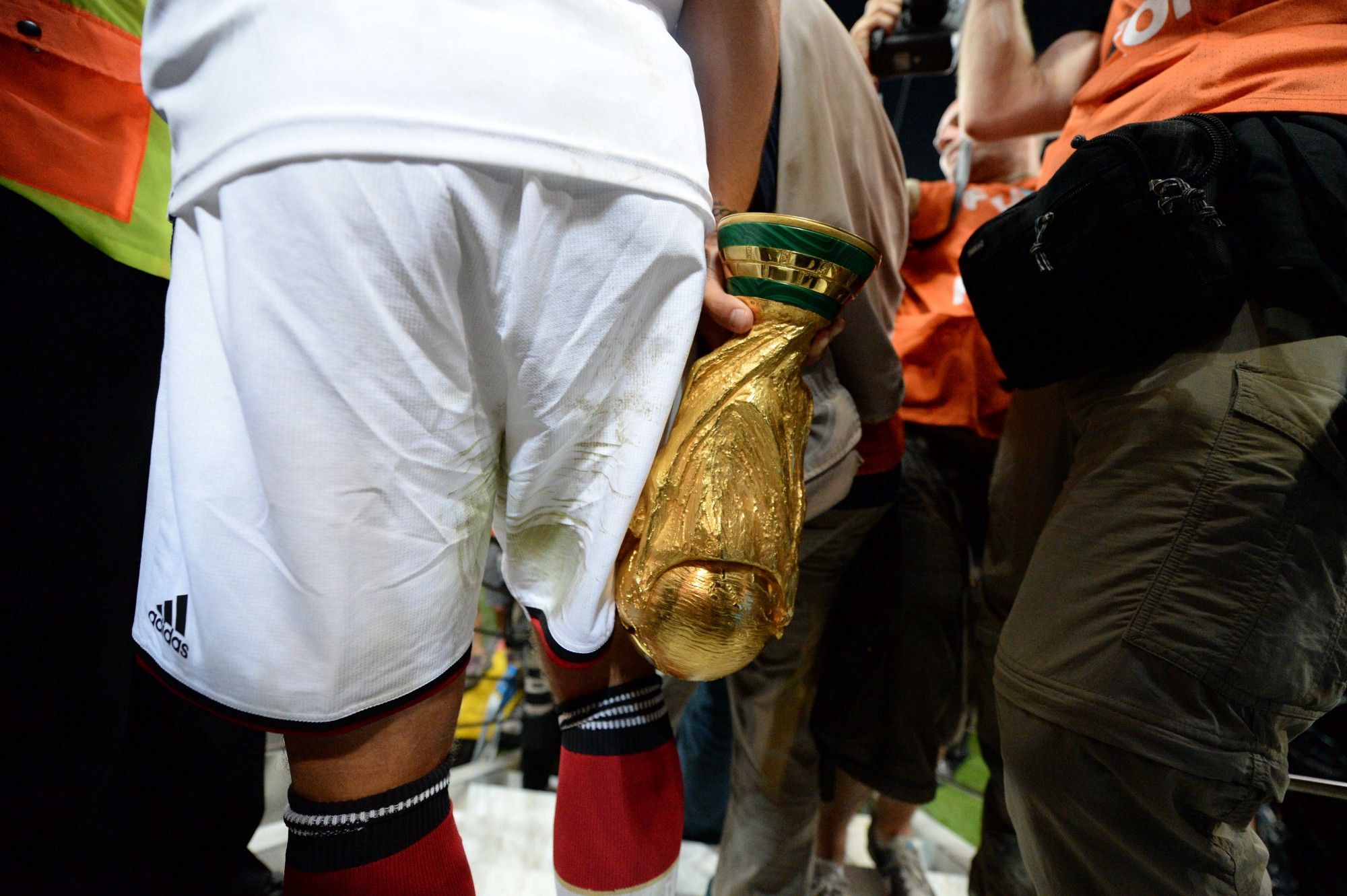Previous triumphs were fraught with political overtones, but the 2014 Champions will be remembered solely for their soccer

By Ogo Sylla | Photo by Ryu Voelkel
[O]nce maligned winners, Germany had, until today, taken on the role of sympathetic losers. Of course the latter is the kind of metamorphosis the German Football Association (DFB), German media, and former German internationals have recently been particularly critical of. After successive semi-final exits in the last three major competitions, Germany finally hurdled that obstacle, doing so in spectacular fashion with their 7–1 thrashing of Brazil.
Heavy expectations also weighed on their semi-final opponents. For the hosts, reaching the World Cup final with the chance to win it was bigger than just a soccer victory.
Other than a victory on the sporting level however, what does winning the World Cup really mean for Germany? The answer: nothing. Following their previous World Cup triumphs in 1954, 1974 and 1990, winning in Brazil would — in theory — represent Germany’s first apolitical victory in its soccer history.
In 1954, Hungary stood at the top of soccer’s international stage. The famous “Miracle of Bern” had profound meaning for the West Germans. It was much bigger than simply ending the “Mighty Magyars’” 32-game unbeaten run. For the divided, postwar Germany, the 1954 victory created unexpected euphoria and represented the victory of a nostalgic Germany.
In post-Nazi Germany, historians, journalists and other intellectuals, in publishing works on the Nazi regime and how it came to rise, censored themselves from using words reminiscent of nationalism. In fact the word “national” even disappeared from public buildings. The only exception was the West German team retaining its name, Die National Mannschaft (the National Team), which was the last thing that gave the German people a sense of unity.
As such, the 1954 World Cup victory can be considered the most important in German soccer history. Konrad Adenauer, the first postwar Chancellor of Germany (West Germany), said the team’s triumph allowed “the Germans to mold themselves a new face.” What Adenauer meant by this is that from 1954 onward, West Germany earned a legitimate claim to once again say, “we are Germans.”
West Germany’s 1974 World Cup win represented the culmination of its postwar economic revival. Die Wirtschaftswunder (the economic miracle) had seen West Germany quickly reconstruct and re-industrialize to become an engine of economic growth in Western Europe.
This fourth World Cup triumph in Sunday’s final against Argentina represents the consecration of a Germany that succeeded in massively overhauling and evolving its soccer.
The West Germans hosted the 1974 World Cup, winning the tournament against the Johan Cruijff-led Netherlands. It was the triumph of a new Germany, a Germany on the ‘right’ side of Europe, a Germany that saw itself more capitalist and more conservative. More importantly, a Germany that had shed the bad reputation of the Nazi regime after completing its final payment in war reparations — under the Marshall plan — three years prior to hosting the World Cup.
Subsequently, the 1974 World Cup victory reflected West Germany’s economic triumph and allowed the Germans to say, “we are the strongest in Europe, and once again at the top.”
The 1990 World Cup win was meaningful in that it was the last of a West German team, with the East German Football Association (DFV) acceding to the DFB shortly after. But the World Cup victory, which followed the fall of the Berlin Wall in 1989, had in fact already marked the triumph of a newly unified Germany.
So of course, relative to its past history, a World Cup win in Brazil would mean very little and not reflect much about Germany’s current world status. That said, Sunday’s World Cup victory is not completely bereft of significance.
This fourth World Cup triumph in Sunday’s final against Argentina represents the consecration of a Germany that succeeded in massively overhauling and evolving its soccer.
Following the country’s failure at the 2000 European Championships, Germany heavily overhauled its soccer infrastructure. The DFB integrated more immigrants into its academies — facilitated by the reform of the German nationality law in 1999 — to improve the selection pool, which opened the path to the likes of Lukas Podolski and Miroslav Klose (Polish descent), Mesut Özil and Sami Khedira (Turkish descent) and even Mario Gomez (Spanish descent), among others.
Maybe this absence of any added significance in victory has helped Germany focus better on their objective: winning. At least, compared to Brazil, the difference was clear as day. Unlike the hosts who were all emotion, Germany had been all business.

